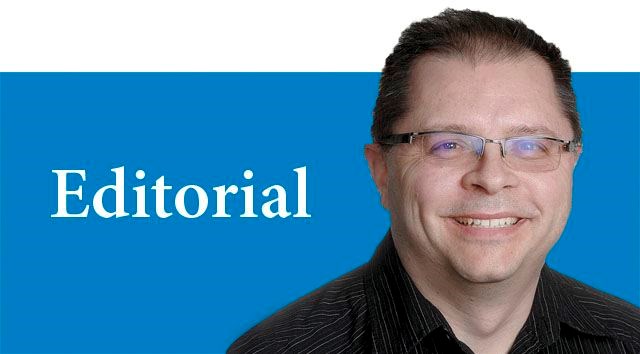There was a time when ideas, education, experience and insight were seen as essential attributes of authority and leadership. Trustworthiness was earned over a period of time, not granted instantly to a fast, loud talker.
Ideas and education are out of fashion at the moment, victim to a culture that thinks Google and Wikipedia have all the answers and books and applied learning are for Sheldon Cooper eggheads who don't live in the real world.
The lack of ideas, particularly in politics, has left a society and its people shuffling around in the dark, willing to elect leaders with sunny ways, that promise to make everything great again but are even more clueless than everyone else.
The examples alluded to above show that the abandonment of core beliefs crosses both borders and political ideology. Donald Trump is no more a Republican than Justin Trudeau is a Liberal. Both men rose to the most powerful offices in Canada and the U.S. by boiling their elections down to popularity contests. Their key goals in government seem to be holding onto power while expanding their level of authority. They are true to themselves and their egos, not to their particular parties, political ideology or the people who subscribe to that ideology, in whole or part.
Stephen Harper was wrong about many things but he governed based on ideas, not cult of personality or bombast.
Harper believed in ideas greater than himself and acted accordingly. His lowest moments were when he forgot what he believed in. Meanwhile, Trump (and to a lesser degree Trudeau) ridicules the very notion of ideas and principles, focusing on attracting like-minded individuals - people who choose doctors, mechanics and presidents based on whether they like them - to his cause.
Politicians were once required to have ideas, big ones and small ones, about how to make life better for everyone. The ones that tried to cruise into power on charisma alone, whether it was to be a small-town mayor, the prime minister or the president, were rightly ridiculed as pretenders.
People knew enough to know that voting for people smarter than themselves was, by and large, a smart thing to do. They chose their politicians the way they chose their mechanic or their doctor, looking for those with the skills to identify the problems and the ability to address them. Likeability had little to do with it.
A true Republican of the Reagan or even the George W. Bush era (or someone like Harper) would have had plenty of ideas, based on conservative principles around individual choice and personal responsibility, about how to fix and/or replace Barack Obama's Affordable Care Act. Most Republicans hate Obamacare and want it gone but have no idea - nor care to know - what would be better.
In Canada, Trudeau and now Christy Clark have discarded big-L liberal party ideals and small-l liberal principles in favour of government in their own image.
That's how Trudeau can celebrate National Aboriginal Day and discredit First Nations opposed to economic development. That's how he can dismiss Northern Gateway and approve TransMountain. That's how she can campaign on a platform and then immediately discard it when voters don't grant her a majority. Her actions make it clear that the only value of the political beliefs behind that platform was to get her and the B.C. Liberals elected.
Most people switch mechanic or doctor or politicians when they don't get results. Automotive repair, medicine and proper governance are ideals worth believing in.
When the individuals chosen to make those ideals into reality fail, new people are required.
The B.C. Liberals got it backwards.
They tossed away their platform and kept the leader. In other words, the Liberal caucus has decided that Clark and holding onto power is more important than their political beliefs.
Imagine the opposite scenario, with John Horgan abruptly declaring his support for the TransMountain pipeline, freezing welfare and childcare rates, advocating for Port Mann bridge tolls and keeping the status quo on political party donations.
As Les Leyne rightly pointed out in his Saturday column, such a move would prompt a caucus revolt, because the leader is not bigger than the party or its principles.
That's an attribute the B.C. NDP shares with the federal Conservatives.
Both have consistently preferred being in opposition than betraying their beliefs in exchange for power. Harper went down to defeat rather than pander to voters.
The jury is still out on Rachel Notley in Alberta but she's showing signs that a second term in the premier's office is more important to her than remaining true to her ideas and principles.
If winning is more important than ideals on how to make society better and improve the lives of individuals, the last thing that politician deserves is to win.
That's a reliable sniff test for any politician at any level and at any point in their career. Best of all, the test works in all situations and with all politicians, even for people who can't be bothered to choose their politicians as carefully as they choose their doctor or their mechanic.
-- Editor-in-chief Neil Godbout



